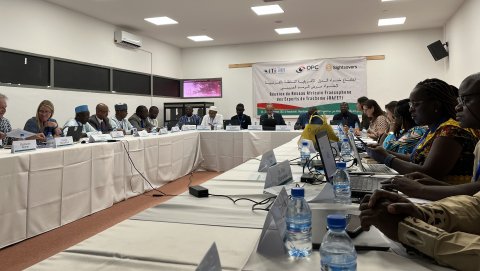By Ayomide Otitoju
The World Health Organization (WHO) has officially validated Mauritania as having eliminated trachoma as a public health problem, making it the seventh country in the WHO African Region to reach this milestone.
The validation certificate was presented during the 78th World Health Assembly to Mauritania’s Minister of Health, Hon. Abdallahi Sidi Mohamed Wedih, and the country’s Ambassador to Switzerland, Aïcha Vall Vergès.
“I congratulate the government and people of Mauritania for this achievement,” said WHO Director-General Dr. Tedros Adhanom Ghebreyesus. “This is another remarkable step in the fight against neglected tropical diseases and a source of hope for other countries still battling trachoma.”
Mauritania’s campaign against trachoma dates back to the 1960s but gained significant momentum in the early 2000s, with epidemiological surveys conducted in collaboration with the Organization for the Prevention of Blindness (OPC), the Institute of Tropical Ophthalmology of Africa (IOTA), and WHO.
The country implemented the WHO-recommended SAFE strategy, which includes Surgery, Antibiotics, Facial cleanliness, and Environmental improvement. This involved mass distribution of Pfizer-donated azithromycin, public hygiene campaigns, and improved access to clean water and sanitation.
“Trachoma elimination is a landmark public health victory for Mauritania,” said Dr. Charlotte Faty Ndiaye, WHO Representative in Mauritania. “It demonstrates strong national leadership and the collective effort of health workers, communities, and partners.”
Trachoma is the second neglected tropical disease eliminated by Mauritania. The country was previously certified free of Guinea-worm disease in 2009.
Mauritania joins 21 other nations globally that have achieved trachoma elimination, including Ghana, Benin, China, India, and Saudi Arabia. WHO continues to support Mauritania in monitoring former trachoma-endemic regions to prevent a resurgence.
The elimination forms part of a broader regional and global push to combat neglected tropical diseases and improve health outcomes in vulnerable populations.










